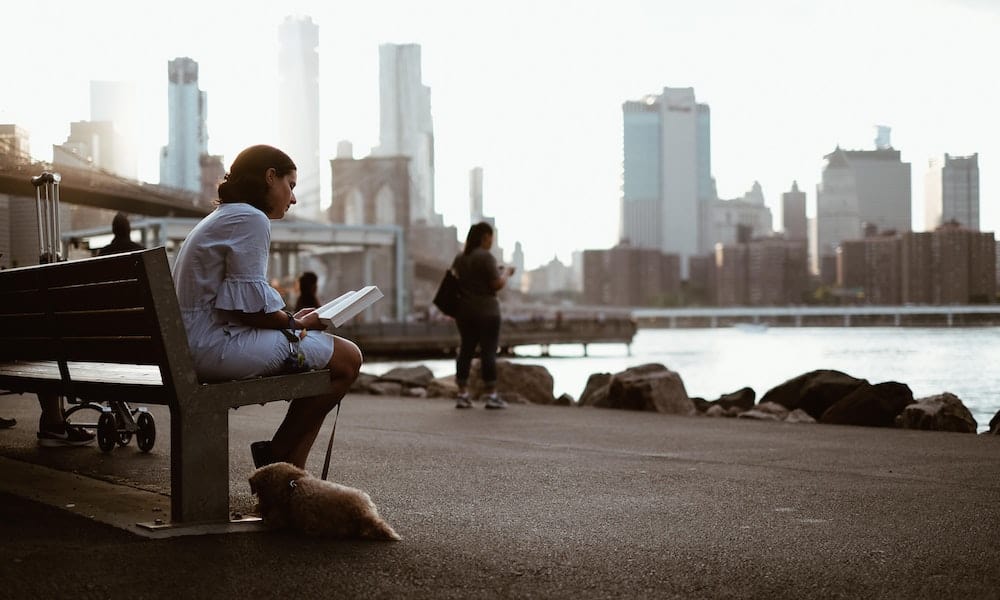

New York City is one of the most dog-friendly cities in the world! But your dog isn’t a true New Yorker until they’ve gotten their NYC dog license. That’s right, as if dealing with human bureaucracy wasn’t enough, your dog has to as well.
All dogs living in New York City need a NYC dog license – it’s the law! Here’s the low down on how to get your paws on one and why it’s worth it to have.
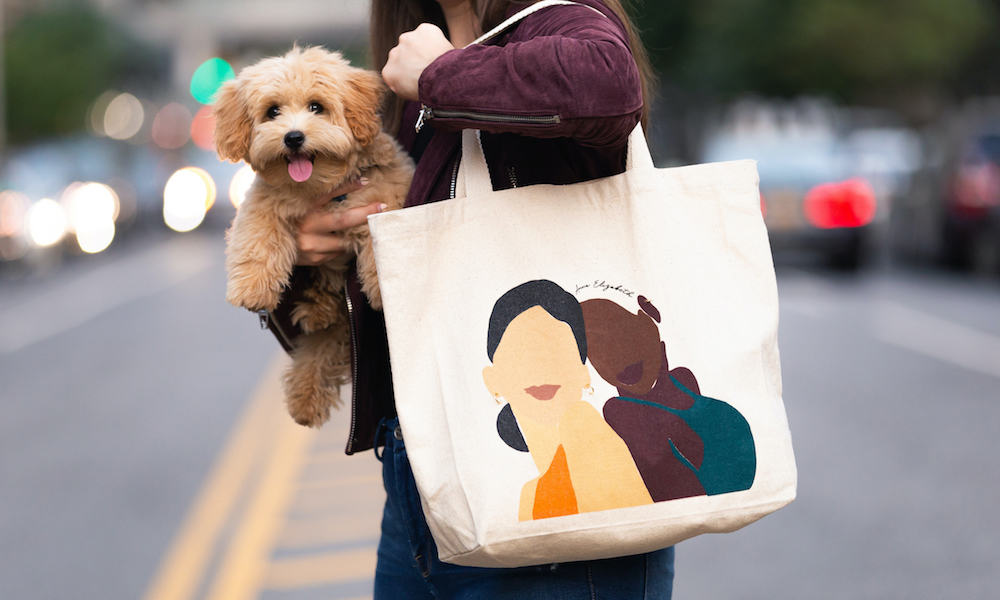
According to New York City, yes – it’s the law! NYC law requires all dogs in New York City to have a license, and the license must be attached to the dog’s collar while in public.
Police officers and Parks Department police can ask to see the license, and look up the number on your dog’s metal tag to confirm that the license is up to date. If your dog doesn’t have a license, or if the license is no longer valid, you can be given a fine.
Better safe than sorry!
Just like American humans are assigned a social security number that remains the same throughout their life time, dogs in New York City are allocated an identification number that never changes. This ID number is unique to each dog, and gets attached to a physical tag that should also include your address and other basic information about your dog.
The ID number is also kept in a digital NYC dog license dataset. The NYC Dog Licensing Dataset is a record of all licensed dogs in New York City, and contains information like dog name, gender, birth month and year, breed, borough, and zip code.
The dataset can be easily accessed online.
Here’s some interesting data we collected from the dataset:
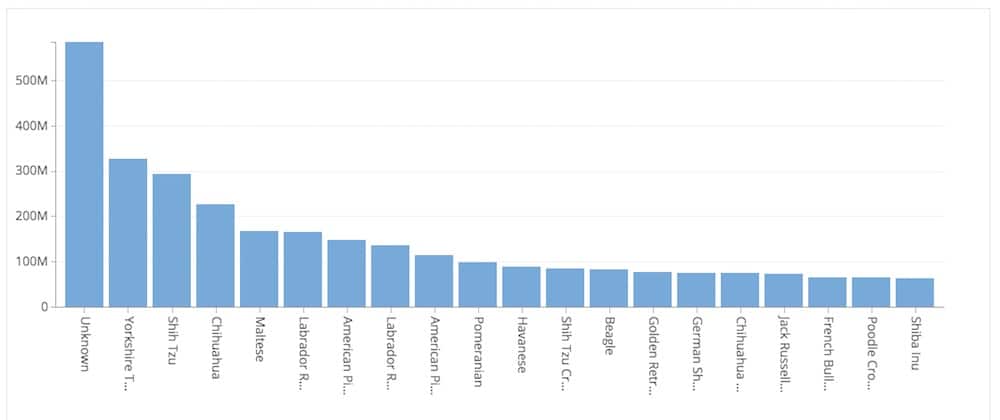
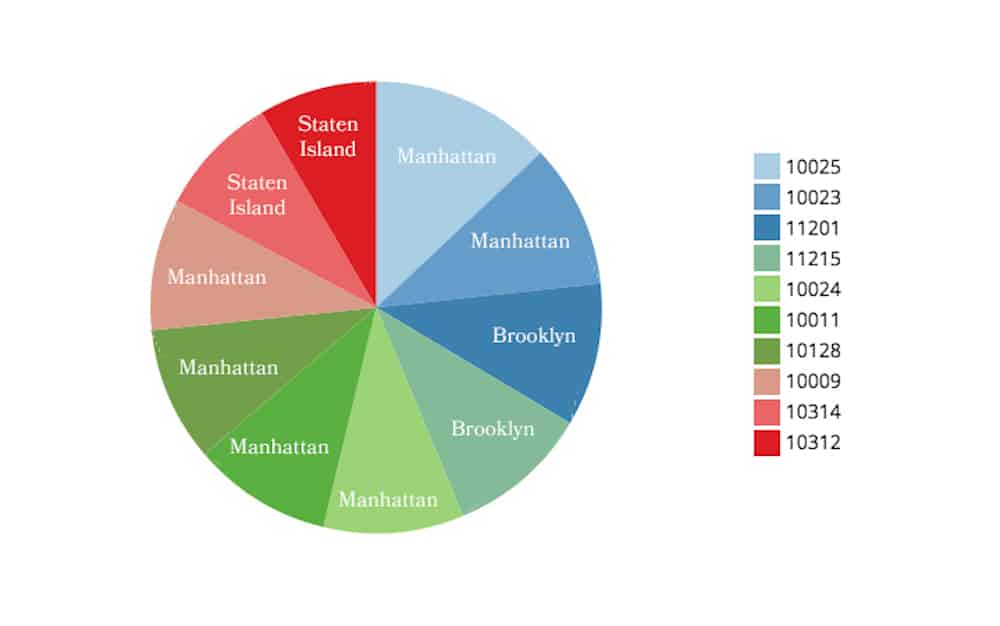
Getting your dog licensed isn’t just necessary to comply with the law; there are perks that come with it too.
A dog license can help dog owners:
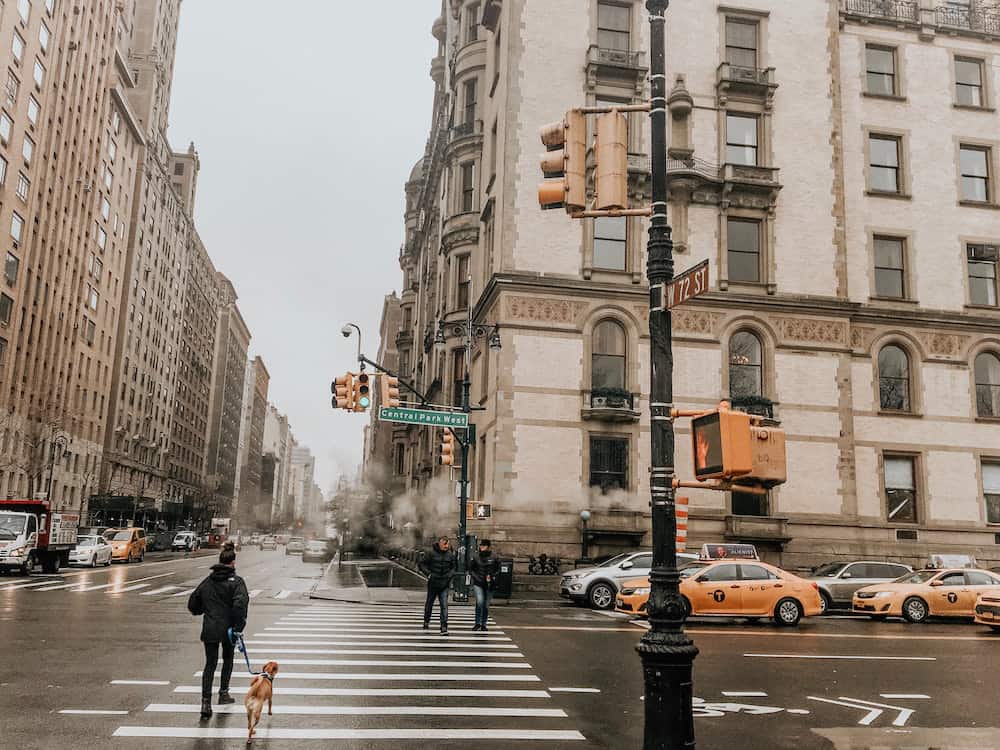
All dogs living in New York City must obtain a license from the NYC Health Department, but there are a few exemptions:
If your dog does not fall within those categories, then they’ll need a current license that is worn in public at all times.
Your dog’s license is a metal tag issued by the NYC Department of Health. It should be worn on their collar or harness whenever they’re in public.
The NYC Department of Health will also send you a printed certificate for your records. You can keep a photo of the certificate on your phone, or you can download an e-version here.
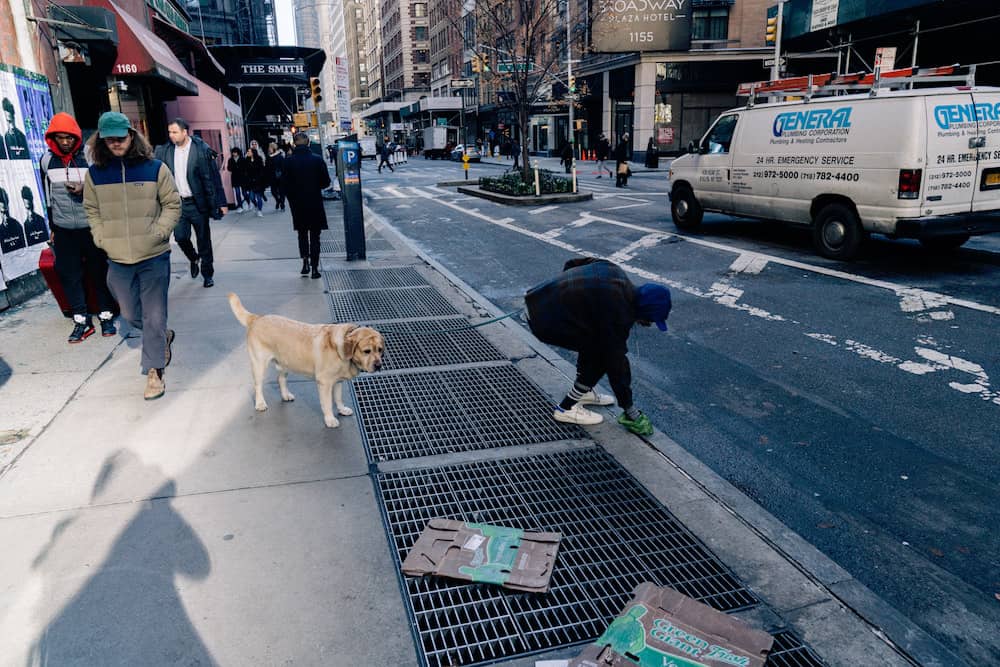
· A completed application form – either done online, in person, or on paper.
· Proof of rabies vaccination.
· Optional: spay or neuter certificate
New York City makes it easy to obtain a dog license. You can either get your dog’s license in person, by mail, or online. Here’s how:
You can apply for a dog license online, and pay online using a debit card, credit card or e-check. You will receive your dog license within two to four weeks after payment is processed.
If mail is more your speed, you can download an application and mail it in. The form and instructions are available to download in both English and in Spanish, or you can request a paper copy of the application by calling 311.
Attach a check or money order (not cash) for the total amount due made payable to NYC DOHMH.
Mail the completed form and payment to:
DOHMH Dog License
PO Box 22136
New York, NY 10087-2136
In person events are a quick and easy way to get a new license, renewal or lost tag replacement. The NYC Department of Health periodically hosts onsite dog licensing events throughout the five boroughs.
In person events are great because dog owners attending won’t be cited for not having a license, and the $2 penalty for renewing an expired license will be waived.
To locate an upcoming event, check out the Same-Day Licensing/Vaccination Events section here.
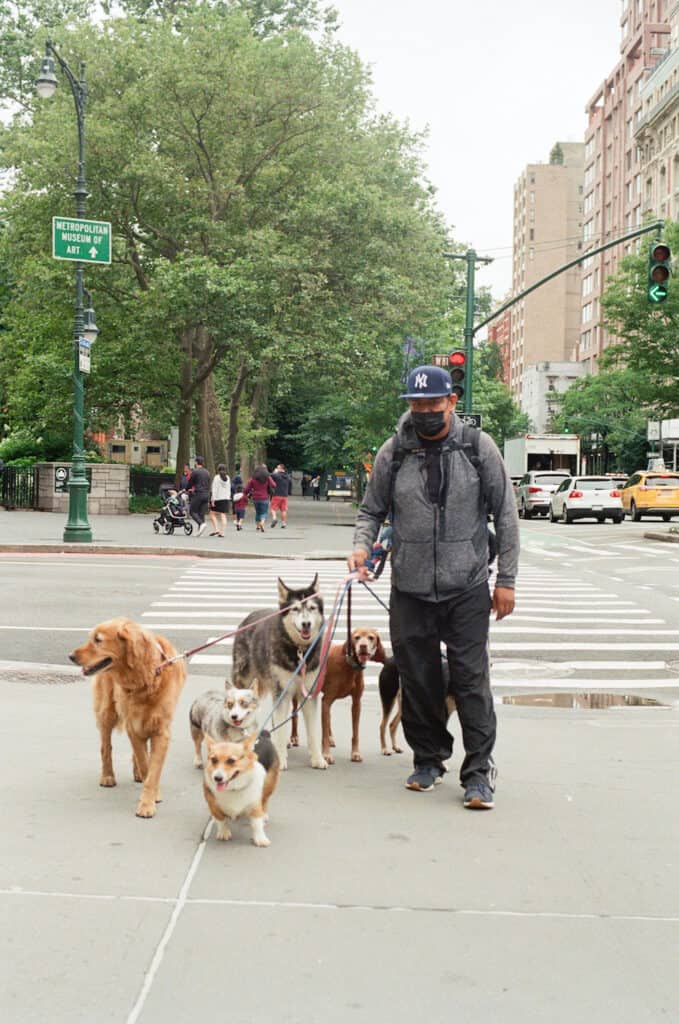
Costs vary depending on your dog’s age and whether or not they’re spayed/neutered.
Licenses for spayed or neutered dogs of any age cost $8.50 per year. If your dog is not spayed or neutered, a license will cost $8.50 if the dog is under 4 months old, or $34 if your dog is older than 4 months. License fees are non-refundable and non-transferable.
You’ll be charged an extra $2 for late renewal if you’re replacing your NYC dog license and a lost tag will cost you $1.
Dog licenses are valid for one to five years, depending on your dog’s age and whether they’ve been neutered/spayed. After that, they expire, and it’s your job to renew the license.
Heads up: If you don’t renew your license before it expires you may incur fines and/or late fees.
When your license is almost expired, you’ll receive a renewal notice in the mail that you can return with payment. You can also renew your license online.
The NYC Department of Health also offers onsite dog licensing at a variety of events throughout New York City. To locate an upcoming event, check out the Same-Day Licensing/Vaccination Events section here.
If you’re unsure about dates or want to be proactive, check your expiration date and status here.
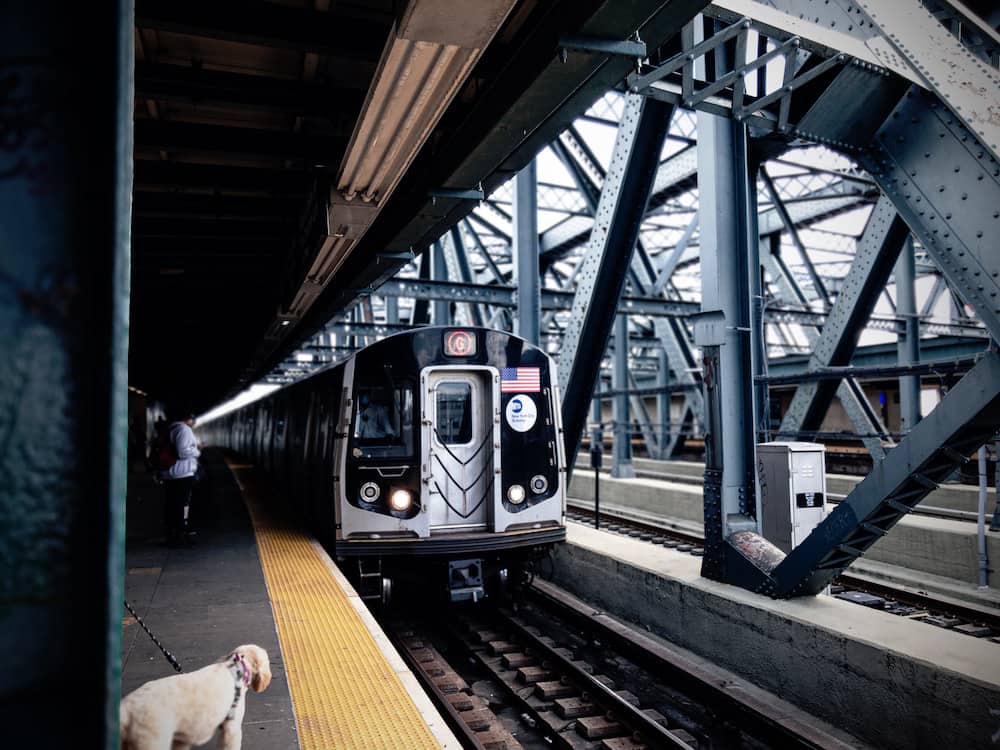
Should you or your dog lose the dog license or tag, not to worry. You can replace the lost tag or license for just $1. There are two ways to do so:
Request a replacement by mailing NYC dog license application form to NYC DOHMH. Don’t forget to note that you’re requesting a replacement.
Include your name, address, dog’s name and dog license number. Mail requests, along with a $1 check payable to NYC Department of Health and Mental Hygiene, to:
NYC Department of Health and Mental Hygiene
DOHMH Dog License
P.O. Box 22136
New York, NY 10087-2136
Request a replacement tag on the NYC.gov website. You’ll need to include your dog’s license number as indicated in the license certificate. If you don’t have the certificate, you can call 311 and request a new certificate, free of charge.
You’ll need to notify the health department if there are changes to any of the following:
You can update your dog license information online, or by sending in a written request to:
NYC Department of Health and Mental Hygiene
Veterinary Public Health Services
Dog Licensing Unit
125 Worth Street, CN 32R
New York, NY 10013
For written requests, be sure to include your name, phone number or email address, the dog’s license number and the updated information.
Service dogs are not required to have a license to enter any public space, according to the Americans with Disabilities Act (ADA).
However, trained guard dogs must be licensed just like normal dogs in NYC. The only difference is that trained guard dogs pay a license fee of $10 per year.
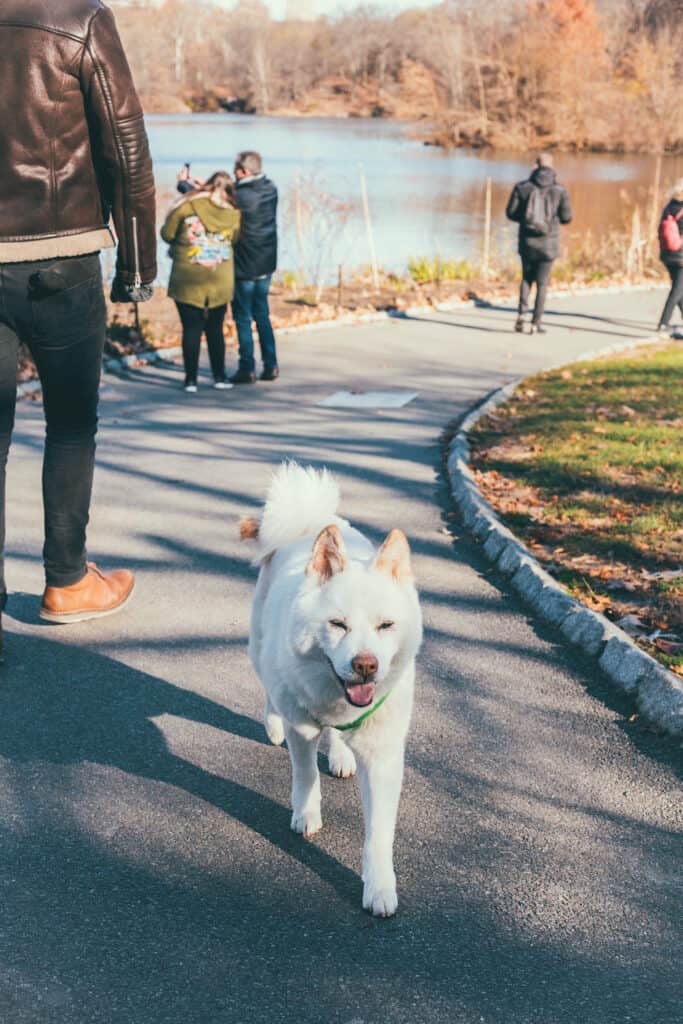
No. Cats don’t need to be registered or licensed in New York City.
But they should still be vaccinated against rabies and microchipped, even if they’re indoor-only.
No, microchipping and licensing are not the same thing.
A microchip is a small electronic chip, about the size of a large grain of rice, that’s placed under your dog’s skin. The chip transmits a radio wave that can be scanned to reveal an ID number. The ID number, when registered, contains your contact information. That way, if your pet ever gets lost, they can be taken to a vet or shelter, have their microchip scanned, and be reunited with you.
A dog license is a unique identification number attached to your dog. It’s located on a physical tag, on a certificate, and digitally in the NYC dog license dataset.
Pin for later!